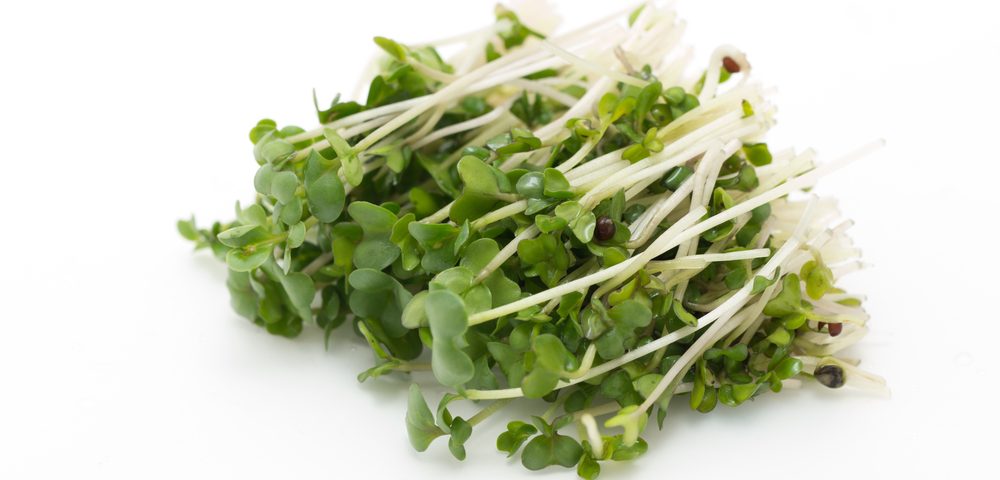Eating a diet rich in broccoli sprouts during pregnancy may help prevent breast cancer later in the child’s life — a preventive measure that may be even more effective than the child’s own consumption of broccoli sprouts, a recent mouse study suggests.
The study, “Temporal Efficacy of a Sulforaphane-Based Broccoli Sprout Diet in Prevention of Breast Cancer through Modulation of Epigenetic Mechanisms,” was published in the journal Cancer Prevention Research.
Increasing evidence suggests that eating more fruits and vegetables may help reduce the risk of breast cancer. The potential anti-cancer benefits of cruciferous vegetables — including broccoli and cauliflower — and their derived compounds, such as sulforaphane, have been reported in preclinical and clinical studies.
Sulforaphane (SFN), the most abundant compound in broccoli sprouts, was shown to induce reactivation of tumor suppressor genes and block tumor-promoting genes through epigenetic changes in human breast cancer cells. Epigenetic regulation consists of the addition of molecules to genes that influence their activity without changing their DNA sequence.
Consuming broccoli sprouts or SFN during pregnancy was reported to potentially prevent different types of human diseases in offspring, suggesting that the prenatal period (before birth) may be the most promising time window to induce positive epigenetic changes that will potentially prevent disease later in life.
Researchers at the University of Alabama at Birmingham and the University of South Carolina in Columbia evaluated the best window of exposure to dietary broccoli sprouts to maximize their preventive effects on breast cancer, as well as the potential involvement of epigenetic mechanisms in this process.
They analyzed two mouse models of breast cancer, in which the female offspring was exposed to a broccoli sprouts diet either before birth (prenatal/maternal treatment), starting at four weeks of age, prior to puberty (six weeks old; early-life treatment), or starting at eight weeks of age (adult-life treatment).
The mothers in the prenatal group and the offspring in the remaining groups were fed with a diet containing 26% broccoli sprouts, which is the equivalent of a person eating about four cups (266 g) of broccoli sprouts per day.
Prenatal treatment significantly decreased the occurrence of breast cancer and delayed its development. While the early-life treatment also showed preventive effects, they were not as strong as those observed in mice exposed to prenatal treatment.
However, no preventive effects were seen in mice who ate a broccoli sprouts diet only in adulthood.
These findings highlight the importance of early exposure to a diet rich in broccoli sprouts for it to have a maximum preventive effect against breast cancer.
The level of positive epigenetic changes induced by each treatment was consistent with the treatments’ level of preventive effects, with prenatal exposure to dietary broccoli sprouts showing the most significant re-activation of anti-cancer genes and suppression of tumor-promoting genes.
Additional analyses showed that genes associated with BRCA1 — whose mutated versions are highly associated with an increased risk of breast cancer — significantly responded to prenatal treatment, suggesting an association between the preventive effects of a broccoli sprouts diet and a gene already known to be involved in breast cancer development.
“The prenatal/maternal broccoli sprout diet may impact early embryonic development by regulating global gene expression … resulting in differential susceptibility to breast cancer later in life,” Trygve Tollefsbol, PhD, the study’s senior author, said in a UAB news story written by Alicia Rohan.
The team hopes their findings will help to develop a dietary regimen for breast cancer prevention in humans to be evaluated in clinical trials. Next, they aim to further identify the specific epigenetic targets of a diet rich in broccoli sprouts.

